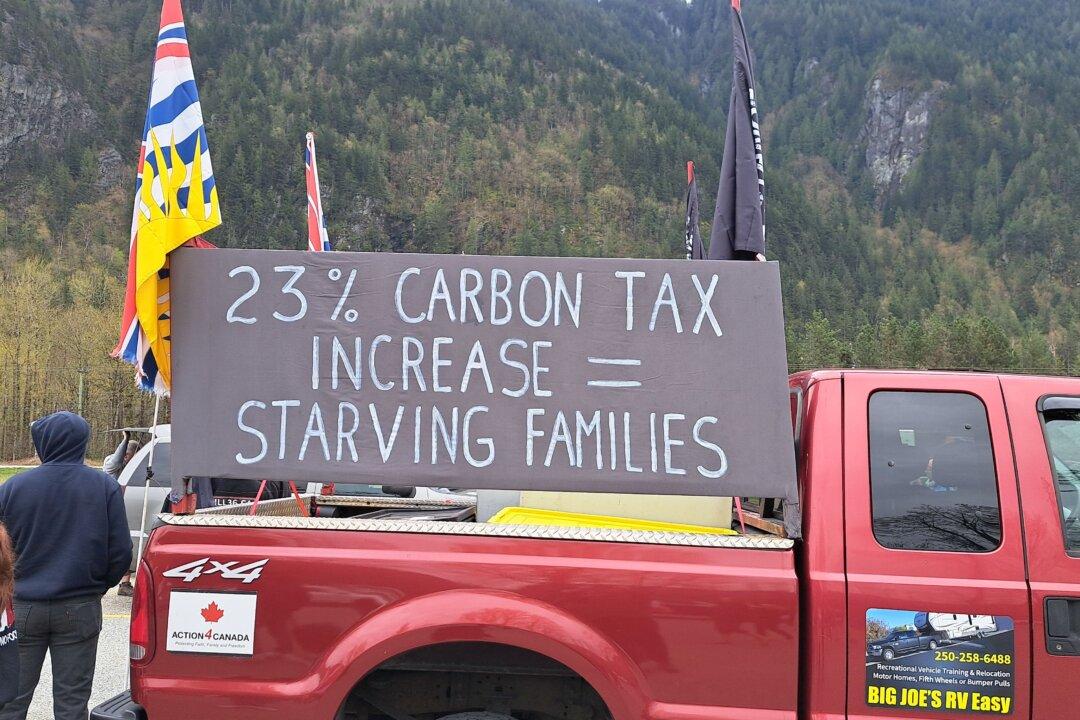OTTAWA—Canadians across the country on April 1 held protests against the federal carbon tax increase, a federal policy they say is making life more unaffordable for those already struggling financially.
The federal carbon tax increased from $65 per tonne of greenhouse gas emissions to $80 on April 1, and is set to rise until it hits $170 per tonne in 2030.





